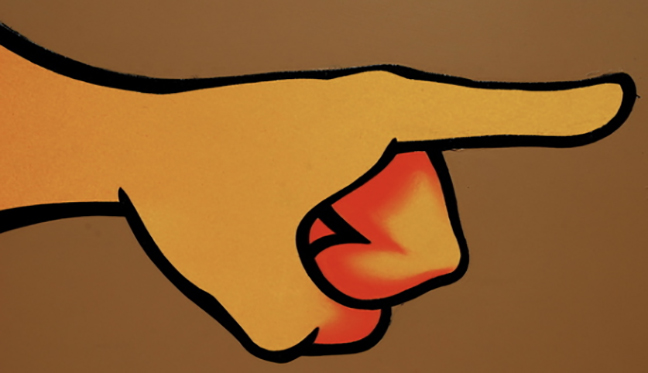
Although it may seem like a fantasy, criticizing your partner in just about any context, weakens an intimate bond that is essential to a healthy relationship. This, like nearly every axiom or “hard as stone” dictum, has important exceptions.
First, let me define “criticize” from the context of this article. Few people will balk at their partner suggesting to them there might be a better way to go about doing something. The criticism I am writing about here does not include “suggestions” as long as they do not carry an ultimatum if not followed. The dangerous sort of criticism is the kind that carries contempt, or attacks character, or a threat of adverse consequences if not corrected or adjusted.
This sort of dangerous criticism usually results from a perceived, or real, power differential. One of the most dangerous conditions in any relationship is an “out of balance” power struggle. Meaning that one or the other partner has an extreme advantage over the other, and that advantage is utilized to benefit the one holding the advantage. Some power differentials come with the territory: a spouse who makes more money than the other, who is skilled in certain areas the other is not, has more experience, more education, a higher IQ—I could go on and on. Sometimes these differentials are formidable, and cause great difficulty in a relationship and the only way to effectively deal with them is to adjust the reaction to them rather than change the differential itself. If exercised, meaning if taken advantage of to position the partner in a more favourable situation, it could, and most often does, create an “unsafe” environment for the person getting criticized.
Feeling unsafe in a relationship must be avoided at nearly all costs. Sometimes the responsibility to create a safe environment lies with the person feeling unsafe. But more often than that it is the partner that creates that unsafe environment; one time-tested way to do this is through criticism. Intimate relationships (meaning what we could also call a “romantic liaison” such as a partnership with a person who has a compatible sexual orientation) requires something rather different than friendships require, or family relationships, or relationships with a boss or employees or co-workers. It requires a strong sense of emotional safety. This may seem to be an irrational demand, and at times it may be. But for the most part it is a status both partners should strive to maintain. For example, if your partner comes home from a bad day at work, and complains to you about his or her boss, even if you may agree with the boss’ perspective, it is best to ally with your partner—not to the point of being disingenuous, but at least ally from an emotional perspective. Focus on your partner’s emotions and feelings. Empathize with that aspect of their turmoil, not on whether or not the two of you agree on where the blame should be placed for having that bad day. You can discuss this later, and maybe come up with constructive plans to avoid a similar situation in the future.
Many people say, “constructive criticism should be a good thing.” One rule of thumb; if your partner reacts to your criticism in a bad way, it is best for you to make an adjustment. If you truly believe your criticism to be constructive, and to your partner’s benefit—but they do not—you probably need to back off and approach the situation from a different perspective. It doesn’t mean the point of your criticism is wrong, but if your partner “reacts” rather than just calmly says they don’t (or do) agree, you are already in the “dead man zone” and there nothing you can do but pull out of it, and try again in a different way. This, again, is unique to intimate partnerships. You must do whatever you can, within reason, to preserve the “safe” environment. If your words, mannerisms, tone, or even subject matter of a criticism triggers a negative reaction from your partner, you cannot expect your partner to rectify that reaction at the time of the reaction, they might but you can’t depend on it. Once that “safe environment” is re-established, you can then go on and attempt to discuss the situation that brought up the criticism to begin with. Or . . . you can just drop it.







This was a great article Todd! Thanks for sharing your insights!
Thank you Ashley! You are so kind!! Anything in particular you would like for me to write about?
So perfectly timed in today’s environment
Thank you Deb…that is a whole other topic, but of course it is related. Criticism is nearly always a “one up” endeavour. To have decent civil discourse you must be careful to keep the power differential as even as possible…and yes, we certainly are not seeing that effort made on Facebook!!
Exactly, is there really anything such as constructive criticism (attack of character, making assumptions, and drawing conclusion about a person’s immutable being) that is constructive or supportive in the first place…. NO.
Yes, Ted, I agree. If you follow John Gottman’s work at all you will see that he agrees as well and essentially says there should be no criticism at all in an intimate relationship. I would venture to say that if that criticism is accepted, or asked for, then it might be ok. But then we get into what the real definition of the word “criticism” is…we can then rename “constructive criticism” to something else…as it is an oxymoron to have “constructive” and “criticism” linked together….constructive observation? Constructive suggestion? Those might work